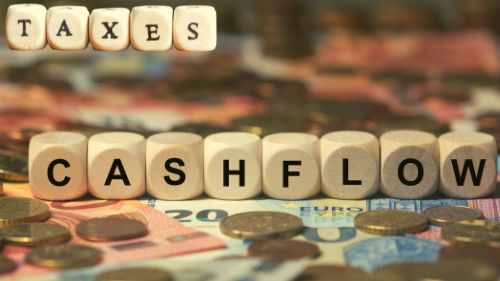Benjamin Franklin said the two things that are most certain in life are death and paying taxes. Everyone must die one day, and everyone who earns money must pay taxes.
You don’t have to be a tax expert to know how to reduce the amount of taxes you pay to keep more money in your pocket. But it is important that you know the different types of taxes that you will likely pay throughout your lifetime, and understand how to manage them so you pay the least amount.
Many people file their own taxes because it is cheaper, but they may not know or understand what deductions they might be eligible for. Conferring with a good accountant can help you figure out these things. It may cost you but it’s just a one time cost that you pay unless your situation changes – such as getting married – that may require you to do another assessment.
The taxman is always in your pocket because:
- If you make money, they tax you!
- If you spend money they tax you!
- If you save money, they tax you!
- If you invest money, they tax you!
- And when you die, they still tax you, and call it death or probate tax!
The main taxes that consumers in Canada pay are:
- Income tax: Employment income, Self-employment income, Pension income, Investment income
- Goods & Services Tax (GST)
- Provincial Sales Tax (PST)
- The Harmonized Sales Tax (HST) – A combination of GST and PST
- Property Tax
- Land Transfer Tax
The amount of property and land transfer taxes you pay are a percentage of the value of the property purchased or the one that is being purchased. Hence, the only control you have where these taxes are concerned is in the choice you make when purchasing a property. If you decide to purchase a big property then you will pay more for these taxes than if you decide to purchase a smaller one.
While the amount of GST, PST or HST you pay is a fixed percentage of the cost of the goods and services that you’re purchasing, there are still ways to reduce the amount that you pay for these taxes. For example:
- Buy clothes and shoes when the seasons are ending because department stores have great sales these times to make space for items for the new season
- Shop around for the items you are purchasing and ask for price matching
- Look for roll-backs and convenient coupons — Costco for instance have the convenient coupons (I find cutting out coupons a headache 😁)
- Buying even a 1-year-old car instead of a brand new one will save you a lot of taxes and fees
- Get multiple quotes for services needed, and read the service reviews. More expensive doesn’t necessarily mean better, and cheaper doesn’t mean bad
- There are lots of DIY videos on YouTube that teaches you to do simple things that you don’t have to pay someone to do for you
- Focus on buying what you need and reduce spending on nice-to-haves or want-to-haves, especially if trying to keep up with the Jones
- Plan your trips ahead of time and buy plane tickets and reserve your rental cars early. They are cheaper when done earlier
- Bring some snacks and food for road trips instead of stopping to purchase food at the rest stops where things are generally more expensive.
The amount of income tax that you pay is where you have the greatest flexibility to manage the amount of tax that you pay because of the following reasons:
- If you’re employed, and usually get a tax return, you can ask your HR department to lower your income tax percentage because you’re obviously giving the taxman more than he should be getting. Then he returns to you at the end of the tax year with no interest!
- If you contribute to your Retirement Savings Plan it reduces the amount of income tax you pay
- If you’re not making the maximum contribution towards your pension, you can maximize your contribution to reduce your income tax
- Report all your tithes and charity contributions, because these reduce your income tax
- Report all your childcare expenses and children activity cost because these reduce your income tax
- If you’re self-employed, keep track of all your related expenses – such as travel, fuel cost, car maintenance – and claim them to reduce your income tax
- Keep track of all your investments related expenses – such as interest, management fees, and losses – because these will reduce your income tax
These are definitely not the only strategies that you can utilize to reduce the amount of taxes you pay, but these are certainly some that I have used to reduce my tax payments, keep more money in my pocket, and thus increase my cash flow.

